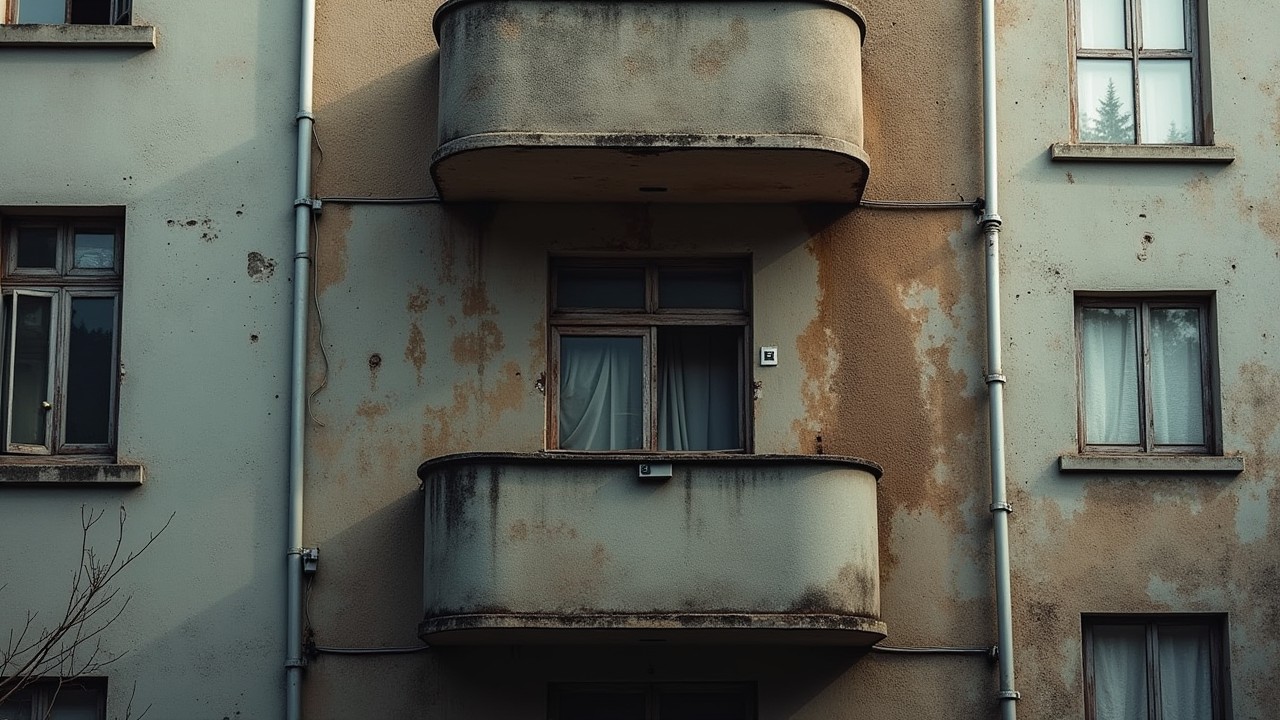The Hidden Dangers of Neglected Balconies: What You Need to Know

Table of Contents
The Importance of Regular Balcony Inspections
Common Hazards of Neglected Balconies
Real-World Consequences of Neglect
ConclusionBalconies offer a serene outdoor space, but when maintenance is overlooked, they can become hazardous. Neglected balconies may conceal structural weaknesses, posing significant safety risks and potential legal liabilities. Regular inspections are essential to identify and address these hidden dangers, ensuring the well-being of occupants and compliance with safety regulations.
The Importance of Regular Balcony Inspections
Routine balcony inspections are crucial for detecting early signs of deterioration that, if left unaddressed, could lead to catastrophic failures. In California, legislative measures such as SB326 and SB721 mandate periodic assessments of exterior elevated elements (EEEs) to prevent accidents and uphold safety standards.
- SB326: Applies to condominiums and common interest developments, requiring EEE inspections every nine years, with the initial inspection deadline set for January 1, 2025.
- SB721: Targets multifamily rental properties with three or more units, mandating inspections every six years, with the first due by January 1, 2026.
These laws emphasize the necessity of engaging licensed professionals to conduct thorough evaluations, ensuring structural integrity and resident safety.
Common Hazards of Neglected Balconies
Several issues can arise from neglected balcony maintenance, including:
1. Water Intrusion and Structural Damage
Exposure to rain and moisture can lead to water seeping into structural components, causing wood rot, rust, and weakening of materials. Over time, this degradation compromises the balcony’s load-bearing capacity, increasing the risk of collapse.
2. Material Degradation
Without regular upkeep, materials such as wood and metal deteriorate due to environmental factors. Signs of degradation include cracks, splintering, and corrosion, all of which undermine the balcony’s structural soundness.
3. Loose or Damaged Railings
Railings provide essential safety, preventing falls and accidents. Neglected railings may become loose, wobbly, or corroded, rendering them ineffective and hazardous.
4. Unpermitted Modifications
Unauthorized alterations, such as enclosing balconies or adding heavy fixtures, can adversely affect structural integrity and violate building codes, leading to safety hazards and legal issues.
Contact DrBalcony for a professional inspection!
Ensure the safety of your balcony and living space with DrBalcony – We’re a Tech Engineering firm that specializes in California SB326 & SB721 balcony inspections. Over 300+ completed projects in California.
Request A Free EstimateClick To CallReal-World Consequences of Neglect
The dangers of neglected balconies are evident in several tragic incidents:
- Berkeley Balcony Collapse (2015): A fourth-floor balcony in Berkeley, California, collapsed during a gathering, resulting in six fatalities and seven injuries. Investigations revealed severe wood rot due to water damage, highlighting the consequences of inadequate maintenance.
- Chicago Porch Collapse (2003): An overloaded porch in Chicago gave way during a party, causing 13 deaths and numerous injuries. The collapse was attributed to structural weaknesses exacerbated by overcrowding.
These incidents underscore the critical need for regular inspections and maintenance to prevent similar tragedies.
Legal and Financial Implications
Neglecting balcony maintenance not only endangers occupants but also exposes property owners to legal and financial repercussions:
- Legal Liability: Property owners may face lawsuits if negligence in balcony upkeep leads to accidents or injuries.
- Regulatory Non-Compliance: Failure to adhere to SB721 and SB326 inspection requirements can result in fines and legal actions.
- Decreased Property Value: Properties with poorly maintained balconies may suffer reduced market value and appeal.
Proactive Measures for Balcony Safety
To mitigate risks associated with neglected balconies, property owners should:
- Schedule Regular Inspections: Engage licensed professionals to assess the structural integrity of balconies in compliance with SB326 and SB721 mandates.
- Perform Timely Maintenance: Address identified issues promptly to prevent further deterioration and ensure safety.
- Educate Residents: Inform occupants about the importance of reporting visible damages or concerns regarding balcony conditions.
- Document All Actions: Maintain detailed records of inspections, maintenance, and repairs to demonstrate compliance and due diligence.
Conclusion
Neglected balconies pose significant hidden dangers that can lead to severe safety hazards and legal liabilities. Regular inspections and maintenance are vital to identifying and addressing these issues proactively. By adhering to SB326 and SB721 regulations and partnering with experienced professionals like DrBalcony, property owners can ensure the safety, compliance, and longevity of their balconies, providing peace of mind for themselves and their residents.
For expert balcony inspection services and to ensure your property meets all safety and regulatory standards, contact DrBalcony today.
FAQ Section: Top Questions & Answers
My property is well-maintained. Do I really need SB-326/SB-721 inspections?
YES! Even with excellent maintenance, hidden issues can develop due to construction errors, material flaws, or severe weather exposure. Inspections are about ensuring those don’t turn into major problems.
Our balconies were inspected a few years ago – isn’t that enough?
Unfortunately, no. California laws mandate inspections on a set schedule, often every 6 years. Deterioration can happen quickly, making regular assessments essential.
Can I use my regular handyman for the balcony inspection?
It’s not recommended. Unless they hold specific licenses (architect, structural engineer, etc.) their inspection won’t be considered valid for SB-326/SB-721 compliance.
What if the inspection uncovers major issues?
First, don’t panic! Early detection often means less extensive (and expensive) repairs are needed. Work with your inspector to prioritize fixes, and explore if they offer repair services for a streamlined solution.
I’m worried about the cost of inspections. Are there any resources to help?
Start by getting detailed quotes from multiple companies. Factor in that proactive inspections help you avoid even bigger costs down the line due to neglected problems. Some property management associations offer guidance on budgeting for balcony compliance.
